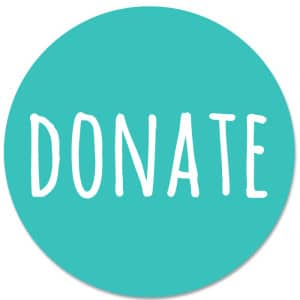Risk Factors for Postnatal Depression
Those more at-risk of developing postnatal depression have one or more of the following:
- Previous Depressive episode
- Relationship/marriage difficulties
- Financial difficulties
- Poor family support
- Single mother
- Young mother (ie. under the age of 22yo)
- Having difficulty breastfeeding
- Baby with colic/reflux or illness
- Other significant stress, eg. death in the family
If you are currently pregnant, Mothers Helpers can provide you with a wide range of support to keep stress to a minimum with an aim to prevent postnatal depression. If you’ve already had your baby and you have any of the risk-factors above or any of the symptoms of PND (we can test your symptoms), Mothers Helpers can provide you with support so that you can recover more quickly and more fully.
By increasing support and directly addressing the specific stress you are dealing with, together we could prevent you from experiencing postnatal depression.
What Helps Recovery?
It helps to look at your health holistically. Many people try to treat mental illness including Postnatal Depression using one method of treatment. The reason this is not very effective is because human beings are made up of physical, mental, emotional/psychosocial, spiritual and cultural aspects of ourselves. These are all connected and impact on one another. The best way of healing and recovering from mental illness is working with each of these. Mothers Helpers does a holistic assessment and helps you to recognize where you are experiencing stress in each of these areas and gives you resources, help and support as well as goal-setting with these.
We talk about your specific situation and the specific issues you are facing. But there are common problems that mothers with postnatal depression experience, and so here are some ideas of what will help you to recover from PND:
Physical
- Regular exercise – preferably something you enjoy; even a leisurely walk will help
- Good diet
- Medication – not everyone needs medication, not everyone responds to medication, but most people diagnosed with postnatal depression will often find some form of medication helpful and with a combination of counselling, they’re likely to recover more quickly than those who do not take medication. We will write more on Medication in a future blog.
- Some people swear by natural remedies. This is a personal choice. If you are interested in finding out more, see your Naturopath
- Sunshine and nature – many people recovering from postnatal depression find they are especially sensitive to the sun and to nature and find it extremely beneficial. Aim to spend a good 15 minutes in the sun every day or more if you can. It releases good chemicals and hormones in your body (so does exercise).
Mental
- Many women find that adjusting to being at home with their baby day after day is very difficult and many women find that returning to work or studying or working on a project gives them the intellectual stimulation that helps lift their mood. It’s not necessarily where all women are at, but some women find that their mental health improves when they make these changes.
Psychosocial
- Emotionally, there is so much to adjust to as a mother. Even if you are a mother for the 2nd or 3rd time, every situation is different. You might be adjusting to juggling a 2nd child with a demanding toddler in the mix; or there might be a wide age gap between your children and it’s almost like having a baby for the first time! Whatever your situation, emotionally it has an affect on us while we are coming to terms with the changes and adjusting.
- Inevitably if you have postnatal depression, you are likely suffering from significant stress in your life. Whether it’s stress in your relationship, difficulties with your baby sleeping or feeding, lack of support or something else.
- More than 50% of mothers feel isolated as the latest NZ survey that came out, told us. And it can be particularly isolating when your baby is very small.
- We recommend spending time talking with a counsellor on a regular basis to process all the adjustments that are going on, alleviate the stress that you are feeling and gain support. Research shows that mothers recover more quickly from PND when attending regular counselling and taking medication together.
- We also recommend finding out your local mother’s groups/coffee groups. Mothers Helpers can help you to tap into those resources. There are also support groups and social groups for young mums, single mums and mums with postnatal depression and a range of other supports online or otherwise for those with other difficulties eg. sick child, breastfeeding difficulties.
- Getting a break: Everyone needs a break from time to time, and that includes you. Time to rest, time to develop an interest/hobby, time for recreation. In our next blog post we will talk about ideas as to how you can get a break. It’s vital to recovery!
So often mothers diagnosed with postnatal depression end up on medication and that is the only change they make to their life and find that not only are they taking a long time to recover, they risk relapse. This is because if the stress that was there at the beginning is still there 6 months/12 months later, it continues to put them at risk of depression.
The reason why the combination of counselling and medication is recommended to be the quickest road to recovery is twofold: Medication will give you sufficient wellness to motivate you to see a counsellor, and to deal with some of the difficult topics you will need to discuss in order to get well. Counselling will discuss some of the stress you’re currently under and what has likely contributed to your depression, and ways you might find change – whether its internal or external changes that need to be made.
